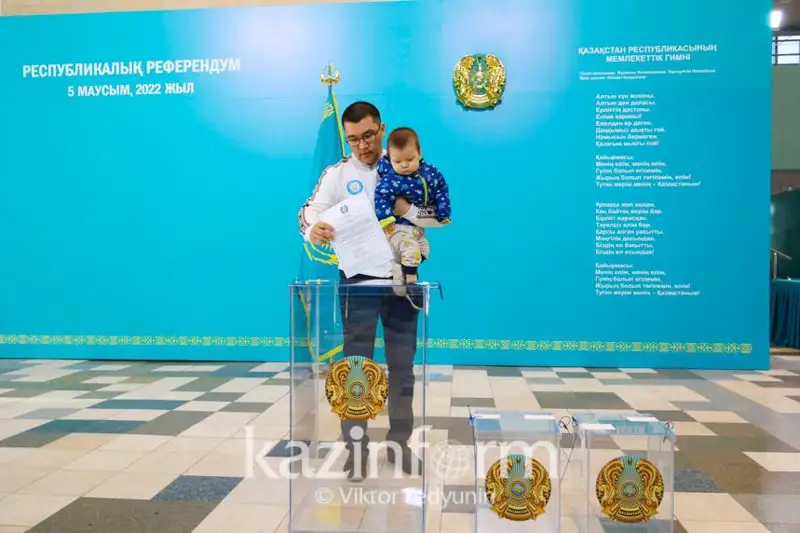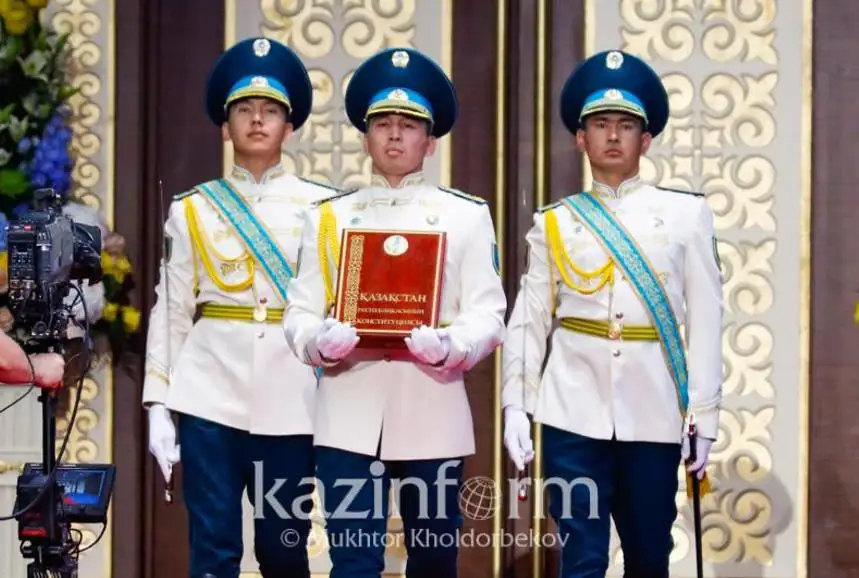Looking back at constitutional referendum in Kazakhstan

President Kassym-Jomart Tokayev called for a national referendum during the session of the Assembly of People of Kazakhstan on April 26. The referendum was needed to introduce initiatives he announced in his March 16 address to the nation.
The referendum adopted amendments to 33 articles of the Constitution. 77.18 percent of citizens, or 6,163,516 people out of 11,734,642 eligible voters, voted for the constitutional amendments. Voter turnout reached 68.05 percent, while turnout at 65 polling stations abroad was 72.95 percent.

According to Tokayev, the changes to the Constitution through a popular vote are a vivid demonstration of the people's will.
«The referendum was an important milestone in the history of our country, showing the solidarity and readiness of the nation for real change. The high turnout was a testament to the maturity and responsibility of our society,» said President Tokayev, addressing the nation on June 6.
The referendum was just the beginning of reforms, according to him.
«On the basis of the updated Constitution, we will form a more effective model for the functioning of all government institutions and strengthen the mechanisms of checks and balances between them. Consistent political reforms will promote the development of the national economy and strengthen entrepreneurship in the country. Now we must establish transparent and fair rules of the game in the economy and reform legislation. It is important to eradicate all artificial monopolies and put up a reliable barrier to corruption,» he said.
The last time Kazakhstan held a referendum was in 1995 when the current Constitution was approved.
What has changed?
Navigating through changes to the Constitution might be difficult, but there are essentially five sets of amendments.

The first set of amendments ensures the final transition from the super-presidential model to a presidential republic. These amendments have banned the president from being affiliated with any political party. The same applies to the chairpersons and judges of the Constitutional Court, the Supreme Court, other courts, the chairperson and members of the Central Election Commission, and the Supreme Audit Chamber.
The amendments also ban close relatives of the President from holding positions of civil servants and heads of quasi-public sector entities and take away from the President the right to remove akims of districts, cities and rural districts from office.
The second block of amendments deals with the redistribution of powers between the branches. The presidential quota in the Senate was reduced from 15 to 10 deputies and five of them will now be proposed by the Assembly of the People of Kazakhstan.
The amendments also re-establish the Constitutional Court, starting from January 1, 2023, and will consist of 11 judges. The Parliament will appoint six judges, the President will appoint four judges and appoint the Chairperson of the Constitutional Court with the consent of the Senate.
Another set of amendments introduces a mixed electoral system of the Mazhilis deputies. The Mazhilis will also adopt laws and the Senate will approve or not approve them.
They also enshrine in the Constitution the norm that the land and its subsoil, waters, flora and fauna and other natural resources belong to the people. Previously, they were under state ownership.
According to the amendments, the death penalty is entirely abolished in Kazakhstan. In 2020, the country joined the Second Optional Protocol to the International Covenant on Civil and Political Rights on the death penalty abolition. The President signed the law ratifying the Second Optional Protocol in January 2021.
State Counselor Erlan Karin said the June referendum demonstrated citizens' support for the current reforms.

Six months after the referendum, the country headed to polls to vote for the next President, where Tokayev landed a victory with more than 80 percent of the votes.
The next for Kazakhstan is the elections to the Senate in January 2023 and elections to the Mazhilis and maslikhats in the first half of 2023.
Written by Assel Satubaldina